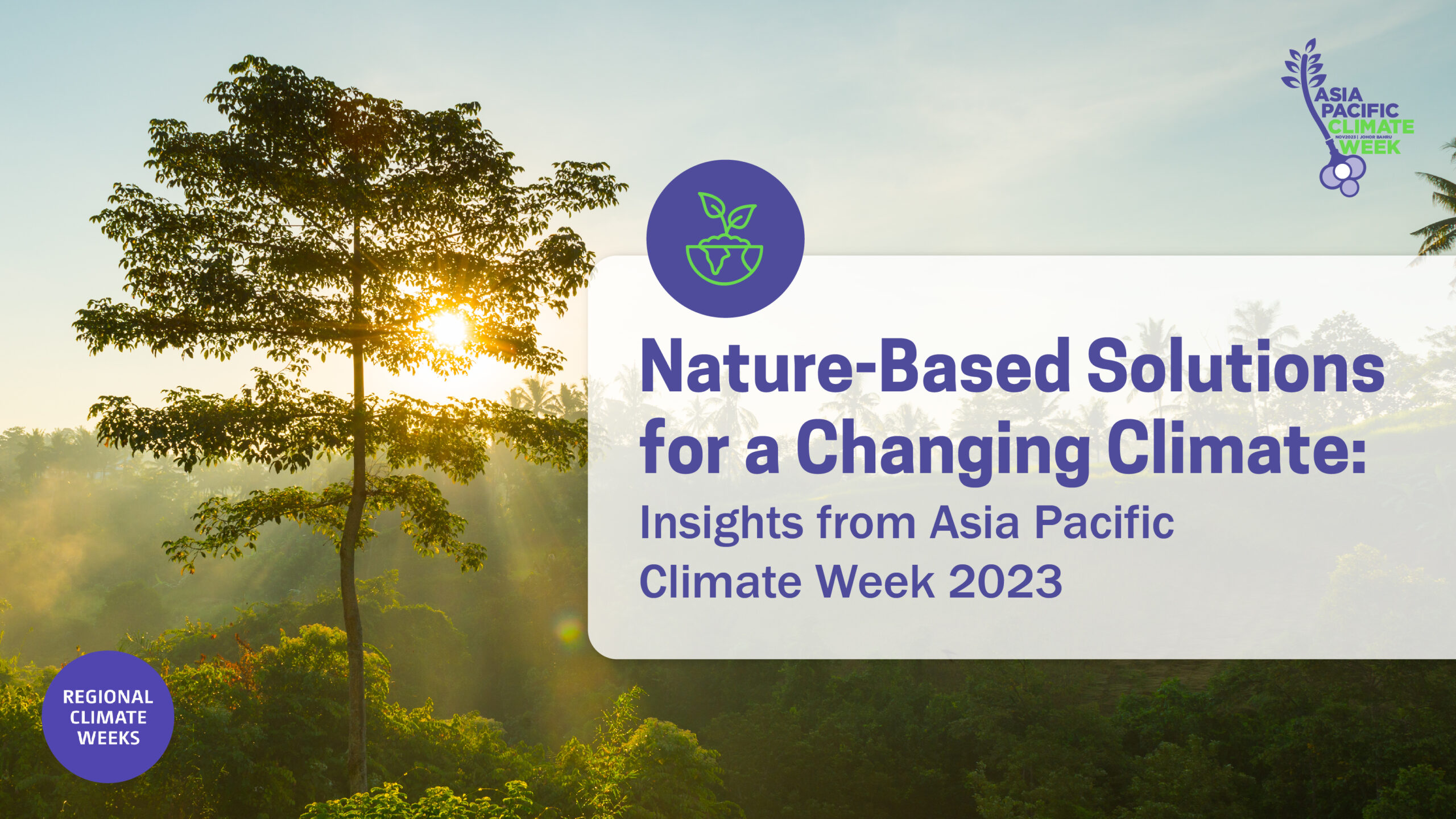
Seagrass meadows, mangroves, and sustainable plantations play a crucial role in climate action in the Asia Pacific region by acting as natural carbon sinks and providing various ecosystem services that contribute to climate resilience and adaptation.
At Asia Pacific Climate Week (APCW) 2023, the importance of these vital ecosystems were emphasised through sessions that highlighted their indispensable roles in carbon sequestration, biodiversity conservation, food security, and the sustainable livelihood of communities within the region. Here are some key takeaways on the importance of these nature-based solutions (NbS):
Combating Seagrass Meadow Degradation Through Policy and Legislative Action
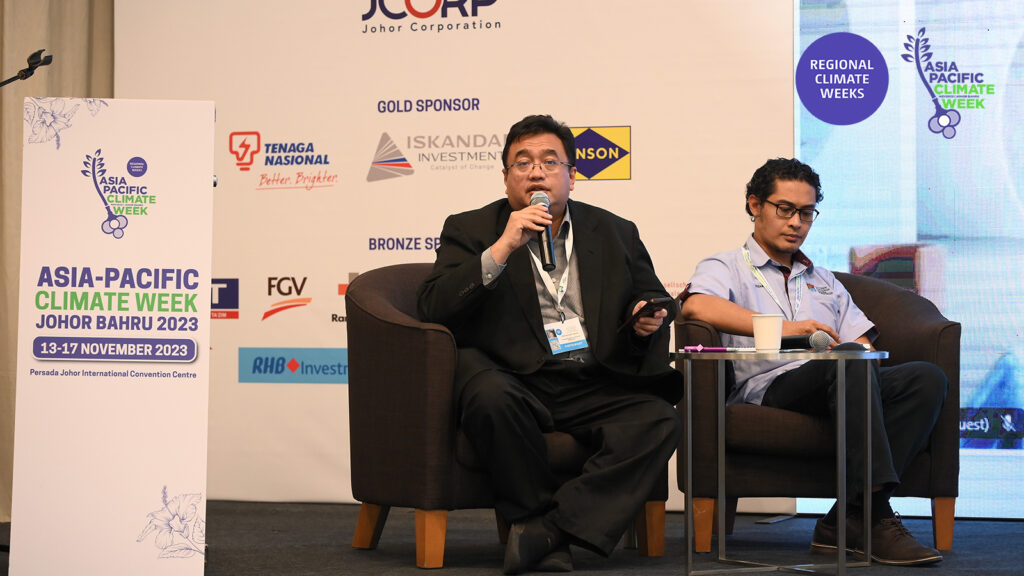
The “Handover of Recommendation for Policies and Legislation to Government to Facilitate the Conservation, Restoration and Preservation of Seagrass Meadows in Malaysia” session explored the importance of seagrass meadows in Johor, Malaysia, which rank among Southeast Asia’s largest. In addition to being part of the region’s marine biodiversity, these underwater forests play a crucial role in carbon storage and food security while functioning as a natural defence against coastal surges and sedimentation.
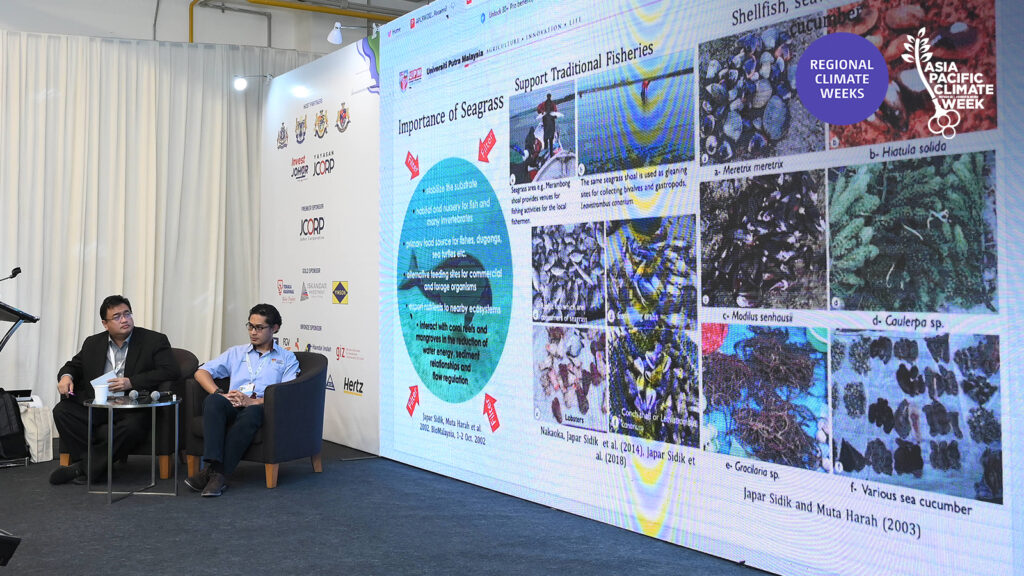
During the session, delegates got to hear from Prof. Dr. Muta Harah Zakaria, Professor at the Department of Aquaculture, Faculty of Agriculture, Universiti Putra Malaysia (UPM) and Dr. Mohammad Rozaimi Jamaludin, Head of Marine Science, Department of Earth Sciences and Environment at Universiti Kebangsaan Malaysia (UKM). Speakers highlighted the critical role of seagrasses in stabilising the marine ecosystem, stressing the importance of monitoring and transplanting efforts.
Unfortunately, only 26% of recorded seagrass meadows currently fall within marine protected areas (MPAs) compared with 40% of coral reefs and 43% of mangroves worldwide. To address this, government intervention is needed to facilitate the preservation of seagrass meadows. While effective restoration models exist, their implementation is often hindered by the absence of supportive government policies. As such, speakers stressed the need for appropriate legislative actions to ensure the long-term preservation of these ecosystems.
Mangroves and Their Role in “Blue Carbon” Ecosystems
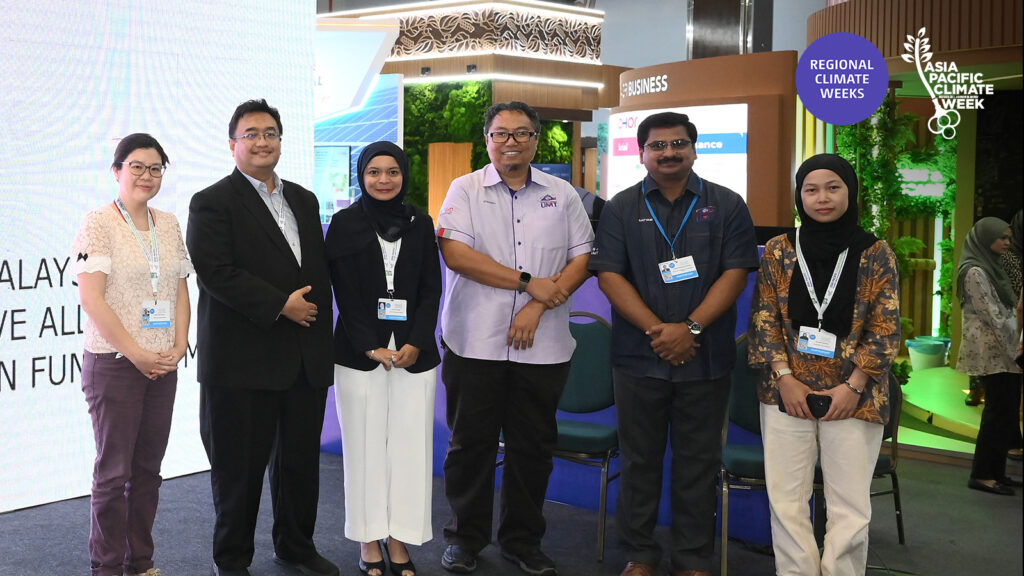
Mangroves, which are increasingly recognised for their role in “blue carbon” ecosystems, are vital for climate resilience and carbon sequestration. This was the focus of the Launch of the Malaysia National Chapter of Global Mangrove Alliance (GMA) and Mangrove Conservation Fund for Sungai Pulai, Johor at APCW 2023.
The GMA chapter, encompassing a diverse collaboration of academicians, NGO activists, and corporate members, underscores a growing awareness of the need to preserve and rejuvenate mangroves. To do this, the launch of the chapter was accompanied by the announcement of the Mangrove Conservation Fund, which will focus on conservation activities in Johor to protect mangrove ecosystems. These initiatives will further receive the guidance of experts from state and federal agencies, and academic institutions such as the Institute of Oceanography and Environment, Universiti Malaysia Terengganu (INOW-UMT), and Universiti Putra Malaysia Consulting & Services (UPMCS).
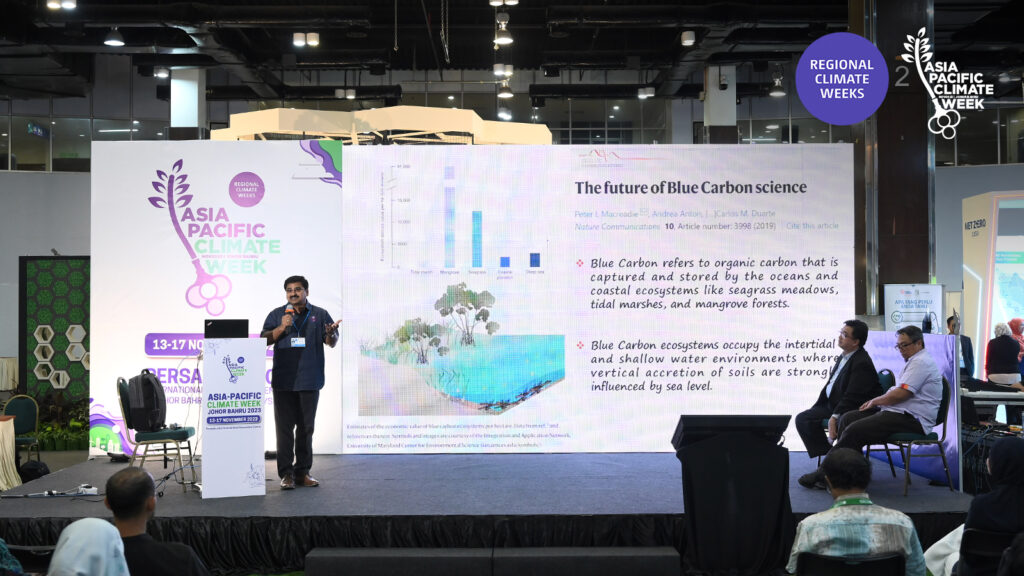
During the launch, specialists like Associate Professor Dr. Behara ‘Satyam’ Satyanarana and Associate Professor Dr. Iswandy Idris of INOS-UMT further emphasised the ecological and economic significance of mangroves. The total area of mangrove forests in Johor is about 20,000 hectares, with the value of “blue carbon” being US$ 900 per hectare. Speakers brought to light the need for increased corporate investment and a fairer approach to sustainability funding. By calling for deeper engagement from businesses and investors in environmental conservation, the launch positions mangroves as essential ecological assets as well as valuable economic resources pivotal in the global effort to mitigate climate change.
Sustainable Plantations and the Future of Food Security
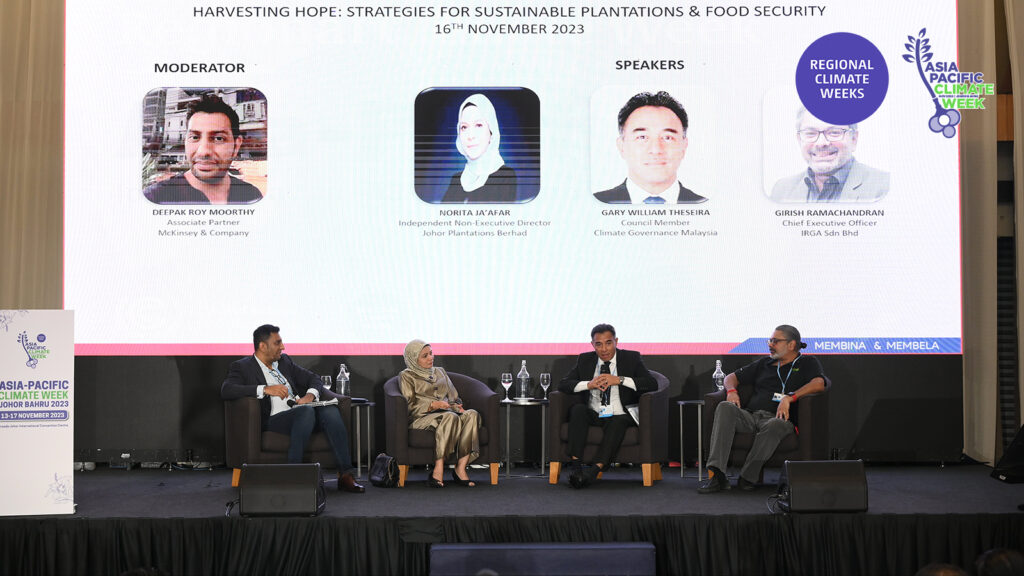
The Harvesting Hope: Strategies for Sustainable Plantations & Food Security panel session explored the intersection of sustainable plantations and global food security while underscoring the role of innovative agricultural practices in today’s world. The discussion was led by Norita Ja’Afar, Independent Non-Executive Director of Johor Plantations Berhad, Gary William Theseira, Council Member at Climate Governance Malaysia, Girish Ramachandran, Chief Executive Officer of IRGA, and moderated by Deepak Roy Moorthy, Associate Partner at McKinsey & Company.
Speakers highlighted the importance of sustainable farming in both mitigating the effects of climate change and ensuring food security. Particularly, Johor Plantations Berhad demonstrated their commitment to pioneering the green movement in Malaysia’s plantations through their transition to renewable energy sources. 65% of their energy needs are now met through renewable sources, resulting in substantial energy savings of 8,000 metric tonnes annually, and a goal of reaching 80% by 2030.
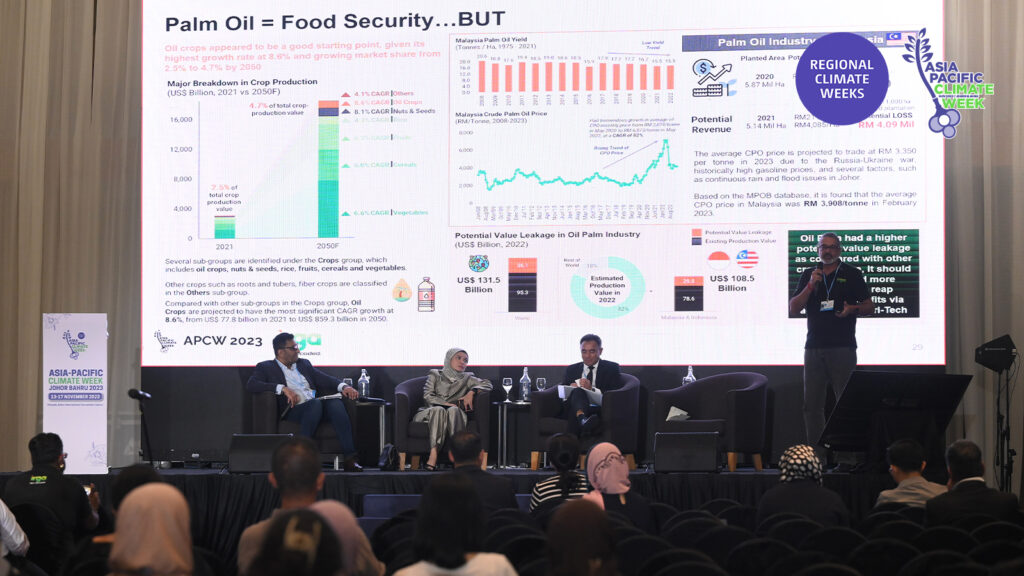
The session also highlighted the broader implications of sustainable plantations on global food systems. Gary Theseira emphasised the interconnectedness of food, water, and energy security, noting the extensive impacts of climate events on food supply chains. He pointed out that nearly all countries, including Malaysia, are vulnerable to food scarcity due to various factors like environmental changes and geopolitical tensions. The session concluded with a call to action, stressing the need for innovative approaches encompassing data and technology to enhance food production and distribution. Beyond environmental stewardship and technological innovation, youth and community involvement were also mentioned to be crucial in the shaping of a sustainable and food-secure future.
The Asia Pacific region is particularly vulnerable to the impacts of climate change, with many countries facing rising sea levels, extreme weather events, and disruptions to agriculture and fisheries. As the sessions highlighted, protecting and restoring seagrass meadows, mangroves, and promoting sustainable plantations can help countries across the region to enhance their climate resilience, mitigate greenhouse gas emissions, and support sustainable livelihoods through nature-based solutions.
APCW 2023 was organised by the United Nations Framework Convention on Climate Change (UNFCCC) and hosted by the Government of Malaysia, in Johor.
For more information, follow us on Facebook, Instagram, X, or LinkedIn.